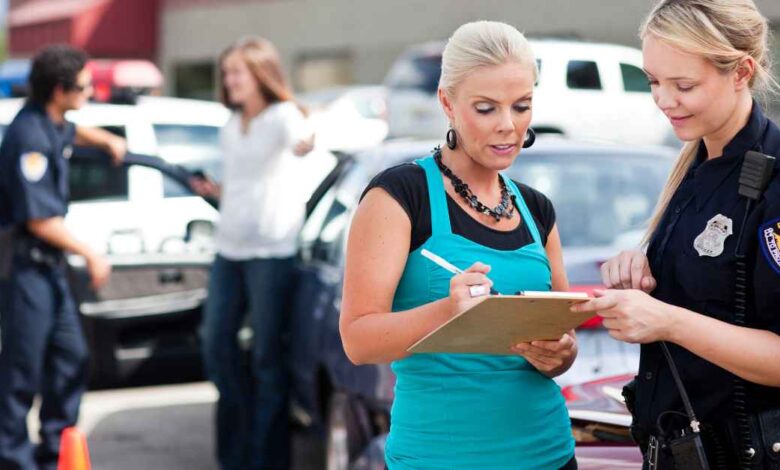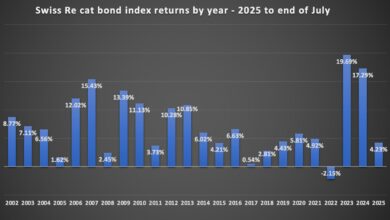What You Need to Know

Key Takeaways
- Police officers, firefighters, EMTs, paramedics, 911 dispatchers, and sometimes their spouses or retired members may be eligible for 5% to 25% off car insurance premiums—depending on the insurer and location.
- Insurance companies view first responders as low-risk, disciplined drivers and offer discounts as a way to honor their public service, often through partnerships with trusted associations like IAFF or FOP.
- Major insurers provide tiered discounts across states, with Liberty Mutual offering up to 12%, GEICO providing federal employee perks, and California Casualty giving unique coverage benefits like identity theft protection.
- First responders can stack their profession-based discounts with other savings—such as safe-driver programs, telematics, bundling home and auto policies, or adjusting deductibles—to significantly reduce annual premiums, often saving hundreds per year.
First responders are the backbone of public safety. They face emergencies head-on, respond in seconds, and protect communities every single day. But here’s something many first responders may not know: their service doesn’t just earn them respect—it can also earn them serious savings on car insurance.
If you’re a police officer, firefighter, EMT, paramedic, or emergency dispatcher, you may qualify for exclusive auto insurance discounts. These aren’t minor markdowns either. Some providers offer 5% to 25% off your premiums, along with policy perks others don’t have access to.
This guide breaks down everything U.S.-based first responders need to know about car insurance discounts: who qualifies, how to apply, what to watch for, and which companies are offering the most generous programs.

Who Qualifies as a First Responder?
Let’s start by defining who counts. While definitions may vary slightly between insurers, most recognize the following professions:
- Police officers (local, state, federal)
- Firefighters (career and volunteer)
- Emergency Medical Technicians (EMTs)
- 911 emergency dispatchers
- Search and rescue personnel
Some insurance carriers also extend eligibility to retired first responders and immediate family members, especially spouses living in the same household.

Most insurers recognize police, firefighters, EMTs, paramedics, and 911 dispatchers as first responders. Some even extend discounts to retired personnel and spouses—so always ask!
Why Insurance Companies Offer These Discounts
Insurance companies provide car insurance discounts for first responders because they recognize the valuable public service these professionals perform, view them as lower-risk drivers, and honor their affiliation with trusted organizations.
1. Recognition of Public Service
First responders—firefighters, EMTs, paramedics, police officers—put their lives on the line daily to protect communities. Insurance companies see this commitment and offer discounts as a way to support and honor these essential workers. It’s more than goodwill; it strengthens customer loyalty and brand reputation.
2. Perceived Lower Risk on the Road
Data shows first responders tend to have cleaner driving records and safer habits. Their training, discipline, and awareness often translate to fewer accidents and claims. From an actuarial standpoint, insuring a first responder can be less costly, justifying lower premiums.
3. Affinity and Membership Benefits
Many discounts tie into affinity programs—partnerships between insurers and first responder organizations such as the International Association of Fire Fighters (IAFF) or the Fraternal Order of Police (FOP). These groups negotiate special rates and perks for their members, giving insurers a focused way to offer savings to a trusted demographic.
How Much Can You Save? (Real Data)
First responders can expect to save between 5% and 12% on their car insurance premiums, depending on the insurer, state, and their specific role.
Real-World Savings Backed by Data
- Liberty Mutual offers discounts up to 12% for active members of organizations like the International Association of Fire Fighters (IAFF) and the Fraternal Order of Police (FOP). These discounts reflect the insurer’s recognition of the reduced risk and public service involved.
- COUNTRY Financial generally provides a 5% to 10% discount for firefighters, EMTs, paramedics, and police officers. In some states, this can rise to 15% depending on eligibility and local regulations.
- Farmers Insurance typically offers around an 8% discount for first responders in fire and police roles, emphasizing their safer driving profiles.
Why These Discounts Matter
- If your average annual premium is $1,500, a 10% discount means saving $150 a year, which adds up over time.
- These savings are in addition to other potential discounts such as safe driver programs, multi-policy bundles, and telematics-based rewards.
- Keep in mind that availability and exact discount percentages vary by state and insurer, so it’s always wise to shop around and ask explicitly about first responder discounts.
Top U.S. Providers with First Responder Discounts
Several major insurers offer first responders exclusive car insurance discounts, typically ranging from 5% to 12%, with eligibility and perks varying by company and state.
Leading Insurers Offering First Responder Discounts
| Insurance Company | Discount Range | Who Qualifies | State Availability | Additional Perks |
|---|---|---|---|---|
| Liberty Mutual | Up to 12% | IAFF members, Fraternal Order of Police, EMTs, firefighters, police officers | Most states, except CA, NY, HI | Accident forgiveness, safe driver programs |
| COUNTRY Financial | 5%–15% | EMTs, firefighters, paramedics, police officers | Select states (varies by region) | Multi-policy discounts, accident forgiveness |
| Farmers Insurance | Around 8% | Firefighters, police officers, EMTs | Nationwide (some state restrictions) | Customizable policies, good driver rewards |
| GEICO | Varies (typically 5%+) | Federal firefighters, police, paramedics | Nationwide | Federal employee discounts, multi-vehicle discounts |
| California Casualty | Variable | Firefighters, law enforcement, educators | Limited to CA, OR, WA | Coverage perks like identity theft protection, deductible reductions |
| Travelers, Direct Auto, Alfa | 5%–10% | Firefighters, police, EMTs (depending on state) | Regional availability | Roadside assistance, accident forgiveness |
What Documents Are Needed to Apply?
Most insurers require simple proof of employment or service. This may include:
- Employment verification letter
- Membership in an emergency responder organization
If you’re retired, bring a retirement certificate or proof of pension from a qualifying agency.

First responders should always ask their insurance agent about available discounts, as some companies require proof of membership in specific organizations or unions (e.g., IAFF, FOP). Also, discounts often stack with other savings like safe driver rewards or bundling policies.
Save more by comparing quotes from multiple insurance agents near you.

Trusted agents working with top national companies.
Beyond First Responder Discounts: Additional Ways to Save on Car Insurance
First responders can boost their savings even more by combining occupation discounts with safe-driver rewards, bundling policies, usage-based programs, and smart coverage adjustments.
Proven Strategies to Lower Your Premiums Further
- Safe-Driver Discounts: Maintaining a clean driving record can earn you up to 22% off your premium. Insurers reward responsible driving habits, so no recent accidents or violations pay off.
- Bundling Policies: Combining your auto insurance with home, renters, or life insurance policies often unlocks multi-policy discounts—sometimes saving you 10% or more.
- Telematics & Usage-Based Insurance: Programs that monitor your driving behavior via apps or devices can cut rates for safe, low-mileage drivers. This is especially valuable if your job limits personal driving.
- Multi-Vehicle Discounts: Insuring more than one vehicle under the same policy or company can reduce costs per car.
- Adjusting Deductibles and Coverage: Raising your deductible or tailoring coverage limits to fit your needs can significantly lower your monthly premium—but balance this with your financial comfort in case of a claim.
Why These Matter to First Responders
Since many first responders already benefit from occupation-based discounts, stacking these savings strategies can multiply overall discounts, making insurance more affordable without sacrificing coverage quality.
Real Numbers: Average Rates & Savings for First Responders
On average, first responders pay about $151 per month for car insurance, which can rise to $202 for full coverage—often lower than the general driver rates—translating into substantial yearly savings depending on your state and insurer.
Breaking Down the Numbers with Real Data
Here’s what the latest data tells us about first responder insurance costs and savings:
- Average Monthly Premiums: According to Insurify, first responders pay roughly $151 per month on average for basic car insurance. Opting for full coverage raises that to about $202 per month. In comparison, the average driver often pays more, making these discounts meaningful.
- Annual Costs: Bankrate estimates that the average yearly premium for first responders is around $1,820, which can be significantly lower than non-first responder rates depending on your discounts and driving record.
- State-by-State Extremes:
-
- Hawaii offers some of the lowest premiums for first responders, averaging $105/month due to its lower traffic risks and regulatory environment.
- Michigan stands out as the highest-cost state, with premiums averaging about $348/month because of state-specific insurance laws and high claim rates
Why These Savings Matter
For a firefighter or EMT paying $151/month versus a general driver paying $180 or more, the difference adds up to over $300 in annual savings. Multiply that across multiple policies or family members, and the financial impact becomes even more substantial.
Eligibility for Spouses and Family Members
Some providers extend the discount to spouses and dependents living in the same household. Even if the car is not registered in the first responder’s name. It may still qualify if the household is insured under the same policy.
Always ask the insurance agent about family eligibility—it’s one of the most overlooked benefits.
Actionable Tips Checklist for Maximizing First Responder Car Insurance Discounts
To get the best car insurance savings as a first responder, follow these proven steps: ask about discounts, compare quotes regularly, bundle policies, and maintain safe driving habits.
- Ask Every Insurer About First Responder Discounts: Don’t assume your insurer automatically applies these. Always confirm eligibility and required proof like department ID or union membership.
- Compare at Least Three Quotes Every Six Months: Insurance rates change frequently. Shopping around twice a year ensures you’re not missing out on new discounts or better deals.
- Bundle Auto and Home Insurance: Combining policies with one company often unlocks multi-policy discounts, saving you up to 15%.
- Enroll in Safe-Driver or Telematics Programs: Programs that reward low mileage and good driving behavior can cut your premiums significantly—sometimes by 10% or more.
- Raise Your Deductible Moderately: Increasing your deductible reduces your monthly premium, but make sure you can cover the deductible comfortably if you file a claim.
- Maintain a Clean Driving Record: Avoid accidents and violations to qualify for safe-driver discounts and keep your rates low over time.
Final Thoughts
If you’re a first responder, your contribution to society is immense—and recognized. Many U.S. insurance providers offer meaningful discounts and perks to help you protect what matters most without overpaying.
You face enough pressure on the job. Paying full price for car insurance shouldn’t be one of them. Take 15 minutes to shop around, ask about first responder discounts, and compare quotes. You might be surprised by how much you can save.
Frequently Asked Questions
-
Who qualifies for first responder car insurance discounts?
Police officers, firefighters, EMTs, paramedics, 911 dispatchers, and search and rescue personnel typically qualify. Some insurers also include retirees and spouses.
-
How much can first responders save on car insurance?
Savings typically range from 5% to 15%, depending on the insurer, your role, and your state.
-
What proof is needed to apply for the discount?
Most insurers require a badge, ID, pay stub, or proof of membership in a recognized first responder organization.



